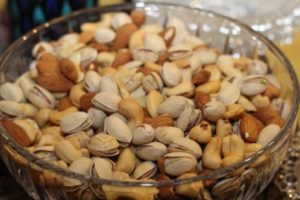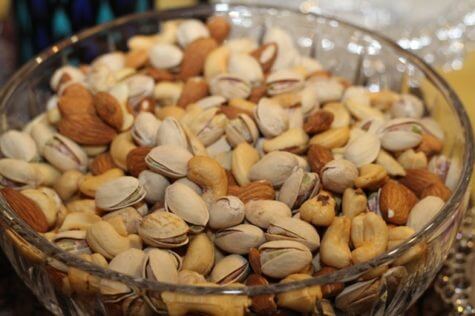WASHINGTON — If you’re nuts about nuts, a new study gives you more reasons to enjoy the delicious snack to your heart’s content, literally.
Researchers at the American College of Cardiology liken nuts to “natural health capsules,” full of nutrients that may decrease the risk of developing cardiovascular or coronary heart disease. While there have been many other studies on the benefits to consuming nuts, this is the largest of its kind to date to consider the relationship between nut consumption and cardiovascular disease.

Nuts used in the study include tree nuts — almonds, Brazil nuts, cashews, hazelnuts, macadamias, pecans, pine nuts, pistachios and walnuts — and also peanuts. Those standards of the good ol’ PBJ, though officially legumes, are nutritionally quite similar to tree nuts and just as good for your heart health.
Researchers gathered information on 210,000 healthcare professionals over a period of 32 years. Over the course of the study, participants filled out questionnaires every two years, providing information about their medical history, lifestyle and health conditions.
Overall, participants who ate five or more servings of any type of tree nuts or peanuts per week showed a 14% lower risk of cardiovascular disease and a 20% lower risk of coronary heart disease than those who never consumed nuts. The study also shows an inverse association between consumption of peanuts and walnuts, and stroke risk.
Researchers found a relationship between the participants with the highest nut consumption and a tendency toward better heart health. For specific nuts, walnuts are an excellent choice. Participants who ate walnuts just one or more times per week had a 19% reduction in cardiovascular disease and a 21% reduction in coronary heart disease. Those who ate other tree nuts two or more times per week had a 15% lower risk of cardiovascular disease and a 23% lower risk of coronary heart disease compared to those who never ate them. Participants who consumed peanuts at least twice a week saw a 13% reduction in cardiovascular disease and a 15% reduction in coronary heart disease.
Researchers say that, while the study was limited to white health professionals, they believe the health advantages would hold true for all ethnicities. They caution that results were based on self-reported questionnaires that did not take into account preparation methods, so errors are inevitable. Despite these study limitations, researchers say the strong relationship between nut consumption and heart health merits additional research.
Dr. Emilio Ros, of the Endocrinology and Nutrition Service at the Hospital Clinic of Barcelona and a researcher with the Instituto de Salud Carlos III, Spain, wrote about the study in an American College of Cardiology editorial.
“Ideally, further investigations should test the effects of long-term consumption of nuts supplemented into the usual diet on hard cardiometabolic events,” Ros argued. “In the meantime, raw nuts, if possible unpeeled and otherwise unprocessed, may be considered as natural health capsules that can be easily incorporated into any heart-protective diet to further cardiovascular well-being and promote healthy aging.”
The full study was published Nov. 13, 2017 in the Journal of the American College of Cardiology.

Comments
Comments are closed.